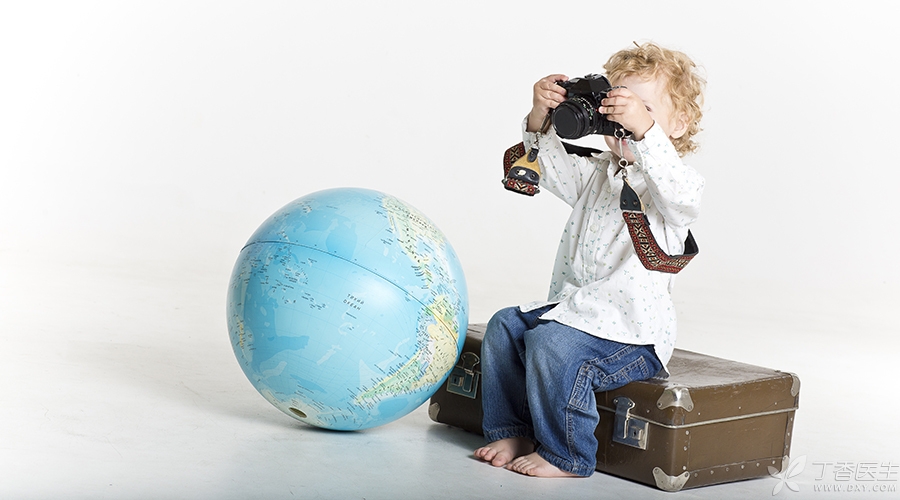
Many parents want to take their children to places farther away during the holidays, such as abroad, which can not only make their children feel the foreign culture and scenery, but also enhance the parent-child relationship during the trip.
However, the ideal is very beautiful, and the reality is always hurtful. Long-term air flight, coupled with jet lag, may cause a series of discomfort to both adults and children, affecting the mood of playing.
Therefore, it is very necessary for parents to learn how to jet lag before taking their children abroad. After all, only by maintaining good physical strength can they leave as many good travel memories as possible.
Before learning dry goods with jet lag, let’s look at why jet lag is so uncomfortable when it changes.
The awful feeling of jet lag
Everyone has a biological clock in his body, reminding people that what should sleep and what should wake up. This biological clock is suitable for the time zone of living in the city.
When traveling to another city, the local time zone is not the same as that of the city where you live, but the biological clock in the body still regulates the sleep and awake time according to the original rhythm, which will lead to the disharmony between the biological clock and the local time.
For example, the time when the body thinks it should go to bed is still the sunny afternoon at the local time, or the time when the body thinks it should stay awake, which is already the sleeping time in the dead of night according to the local time.
The disharmony between the biological clock and the surrounding environment will cause a series of uncomfortable feelings to the body, such as difficulty in falling asleep, insomnia, fatigue, fatigue, difficulty in concentrating during the day, gastrointestinal discomfort, etc.
Light also affects the body clock
The human biological clock will be affected by light, and the adjustment of sunlight to the biological clock is especially important.
Because the biological clock is regulated by a hormone called melatonin in the brain, the secretion of melatonin is mainly affected by external light, increasing in dark environment at night and decreasing in bright environment during the day.
In addition to natural light, artificial light such as light and electronic screen light will also affect melatonin secretion.
When traveling, adjusting the lighting may help adapt to the rhythm of the new time zone.

How to reverse jet lag
1. Find out whether to fly east or west.
Before learning the skill of jet lag, parents should first make clear which direction the plane is flying, west or east.
The west-east direction mentioned here is determined according to the time zone map. It is not clear where to fly. First, the location of the destination is determined according to the map, and then the relative location of the departure point and the destination is determined according to the direction.

Flying west is equivalent to setting the clock slow, flying east is equivalent to setting the clock fast, usually flying west is easier to reverse the time difference than flying east.
Generally speaking, only when the time difference exceeds 3 hours can there be obvious time difference reaction, which requires preparation in advance.
Step 2 Prepare ahead of time
Inform the child in advance of the activities in the next few days, tell the child that they need to do what, so that the child is more willing to cooperate actively.
A few days before departure, adjust the sleep time with the children, fly east and try to sleep 1-2 hours early every day, and fly west and try to sleep 1-2 hours late every day.
3. During flight
In unfamiliar environments, children may not adapt. Parents can take their children’s favorite toys, picture books, pillows, blankets, etc. to the plane to increase their familiarity.
On the plane, set the watch as the time of the destination, try to arrange meals and sleep according to the time of the destination, and pay attention to keeping water at the same time.
At the time of sleep, you can use light shields, eye patches, earplugs, etc. to help your child rest. Even if your child cannot sleep, don’t play with electronic devices such as iPad.
Because the light source of the electronic screen will also interfere with the biological clock, it can tell stories and chat to children in the dark or under the lowest lighting, and slowly cultivate children’s drowsiness.
Step 4: Arrive at your destination
After arriving at the destination, if it is daytime, try to stay up until 10 pm local time before going to bed. If the child is really sleepy, he can take a nap in the afternoon, but pay attention to setting the alarm clock and don’t let the sleeping time exceed 2 hours.
If you can, it is better to choose the flight that arrives in the evening. After dinner at the hotel and a little rest, it is time to go to bed.
5. First Days at Destination
After arriving at the destination, you must arrange meals according to the local time. Don’t stay in the hotel in the afternoon. Try to take your children outdoors, receive light, and arrange sleep time at night according to the local time.
If time permits, the main activities should not be arranged on the first day or two of arrival at the destination, and the biological clock should be adjusted to the new time zone as much as possible on the first day or two of arrival.
Only when you have a good rest can you play well.
